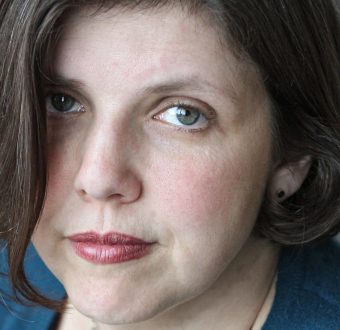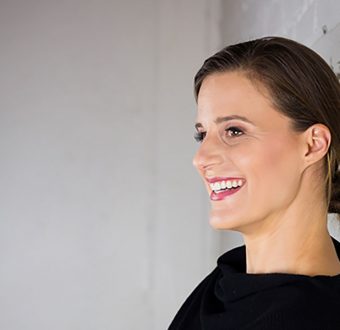The Climate Crisis Is Brought to You, In Part, By The Economics Profession, (which alone among disciplines with any pretense to analytic rigor, has steadfastly ignored the Second Law of Thermodynamics)
Climate change is one of the more obvious and clearly established proofs that our present economic system is unsustainable. The physical and chemical principles involved in climate change have been known for a century and a half. By 1908, a Swedish scientist had applied them to atmospheric science and predicted planetary warming, and by the mid-1950s a pair of researchers – Roger Revelle at the Scripps Institute of Oceanography and Hans E. Suess, a chemist at the University of California, San Diego – had seen enough to warn that by emitting ever-increasing amounts of carbon exhaust, “humans are now carrying out a large-scale geophysical experiment of a kind that could not have happened in the past nor be repeated in the future.”
Over the next half century, scientists in a variety of disciplines worked to prove or disprove Revelle and Suess. Evidence accumulated, and gradually a near-unanimous consensus among scientists emerged: the climate is changing, and humans are driving that change. By the turn of the twenty-first century, scientific organizations were issuing position statements like this one from the American Meteorological Association in 2003: “Human activities have become a major source of environmental change. Of great urgency are the climate consequences of the increasing atmospheric abundance of greenhouse gases.” In 2004, the Pentagon gave President George W. Bush a report (which his administration suppressed) warning that “climate change and its follow-on effects pose a severe risk to political, economic and social stability,” with consequences for US national security that “should be considered immediately.” “Disruption and conflict,” the report warned, “will be endemic features of life” as climate change progresses. (“This is depressing stuff,” one of the coauthors told reporters in Britain covering the story. “It’s a national security threat that is unique because there is no enemy to point your guns at and we have no control over the threat.”)
In any impartial and dispassionate analysis, the evidence supporting humanly caused climate change has to be convincing. Yet there are plenty of supposedly authoritative voices telling us that the phenomenon isn’t real because the science isn’t settled or is simply and persistently mistaken.
Reputedly intelligent people – people who think of themselves as rational beings dedicated to making judgments based on good evidence and sound logic – continue to influence public opinion by counseling us to ignore even the most obvious manifestations of our culture’s transgression of ecological limits. The ones who don’t simply deny the scientific evidence insist that the climate problem is exaggerated and will, in any event, self-correct. In this latter faith no group of credentialed, supposedly intelligent people has been more sanguine than academic economists. The discipline of economics has promulgated the idea that environmental problems brought on by growth-at-all-costs can best be met only through additional economic growth. Don’t worry, standard economic theory tells us: it will be easier to buy our way into sustainability when we become wealthy enough.
But in their enthusiasm for the admittedly impressive ability of free-market capitalism to generate wealth and thereby raise human society to heights of material comfort, mainstream economists have ignored this fundamental physical truth: economic activity takes in valuable matter and energy from its environment and discharges degraded matter and energy back into it. Because the planet itself is finite, its capacity to sustain either flow without ecological degradation is finite.
When theory abstracts too far from reality, then in theory, anything is possible – including infinite growth on a finite planet. In the real world, though, some things are impossible. There is no process, on Earth or beyond, that can turn heat and motion back into gasoline. It’s a one-way flow, from more valuable (concentrated, available) to less valuable (dissipated, unavailable) forms. Together the first and second laws of thermodynamics forbid perpetual motion – schemes in which energy is created, or used over and over. An economy is like a living thing, or for that matter, a machine: both kinds of entities take in a flow of scarce low entropy and excrete a high-entropy wake. Neither can operate by consuming their outputs as inputs.
Because we have too long ignored these truths, our inevitable transition to a sustainable economy – one that lives on a stable, sustainably sourced flow of matter and energy throughput; one whose outputs of degraded matter and energy are readily absorbable by its host ecosystems – will be accompanied by dramatic and painful changes. It has happened before in the history of civilizations, as Jared Diamond shows us in Collapse: How Civilizations Choose to Fail or Succeed. There’s no reason to think we’re exempt from the commonsense conclusion that emerges from Diamond’s series of case studies: a civilization that fails to establish itself on an ecologically sustainable foundation will cease to exist.
Mainstream economists, as a group, have consistently taught and counseled that infinite growth is possible on a finite planet. They have, with a rigor enforced by their discipline’s precepts and boundaries, ignored the foundation that an economy has, and must have, in nature, and the effects of economic processes on natural systems. That ignorance puts us where we are today, on the brink of an absolutely unavoidable and enormously painful transition, a transition that will come, whether we plan for it or not.
—
It becomes increasingly evident that environmentalists’ warnings about climate change can’t be safely ignored. The daily succession of extreme weather disasters and other bad news on the environmental beat increasingly forces us to recognize that something is fundamentally and basically wrong with how we’ve organized our economic life and our thinking about that economic life. By the time a majority of Americans recognizes the need for change and succeed in getting that recognition to be the foundation of electoral politics and subsequent policy, the steps necessary to retrieve a sound ecological foundation for our culture will be dismayingly difficult. Landscapers and foresters have a saying that applies here: the best time to plant a tree, or to begin addressing our ecological crisis, is twenty years ago. The second-best time is today.
American voters need to see that the work of building an environmentally secure future is not just about building a sustainable economy; it’s about sustaining our communities as well. They need to hear this message: everything that we value – things like strong families, good neighborhoods, financial security, health, physical safety and security, clean air and water – is not only possible but is easier to get, have, and keep within a sustainable economy. They need to hear that the aspects of modern culture that they don’t like – broken families, families that disperse and live far apart, the fear and anxiety that come with crime and foreign wars, the incidence of sad people living in isolation who don’t know their neighbors and can’t rely on them, the dirtier air and water brought by the feverish pursuit of resources, all the environmental threats to safety and health, and not enough time to do all the things that bring us happiness and well-being – have their origins in a get-rich-quick economy that tells us, implicitly and explicitly, that using fossil fuel to make and chase wealth is the highest purpose in life.
Both Democrats and Republicans have been partisans of Infinite-Planet Theory, though the most doctrinaire assertion of infinite-planet principles has come from the conservative wing of the Republican Party. Conservatives have been successful in pandering to people’s legitimate desire to preserve their freedoms and enjoy the benefits of healthy communities, even as the conservative political agenda promotes the privatization of public goods and the unregulated engines of economic development that impose social and ecological externalities on all of us, damaging the physical and social foundations of our freedoms and communities. Conservatives sell us the disease, then sell us potions and lotions that they say will cure it but in fact can only make it worse.
The choice we face – the most salient division that will shape politics for generations to come – isn’t between Republicans and Democrats, between conservatism and liberalism, or even between free-market ideology and social control of capital. The fundamental division that will shape the future of our country and our civilization, our politics, and our planet is the choice between neoclassical business as usual and a new economic vision; between Infinite-Planet Theory and Sustainable Communities.
—
As we begin this critical new year in the fight against climate change, Greenpeace is giving over space on our channels to authors and artists working within the climate crisis. Acclaimed author Lauren Groff prompted artists and thinkers to write essays and art about climate change for us, and so every day this month we’ll have a new piece from that project that addresses, in some form, what it means to create in the midst of this crisis. The forces fueling climate change have the most powerful networks in history pumping out their devastating propaganda at unimaginable scale. It’s going to take everything we have from all of us – imagination equal to the task – to create the climate we’ll need to stop the crisis.
We need these voices and these visions, but they won’t be enough. We need you, too. We encourage you to check back on the Climate Visionaries Artists’ Project every day to see what’s new, and to join the conversation by sharing your work on Twitter, Facebook, and Instagram and tagging it #ClimateVisionaries.





